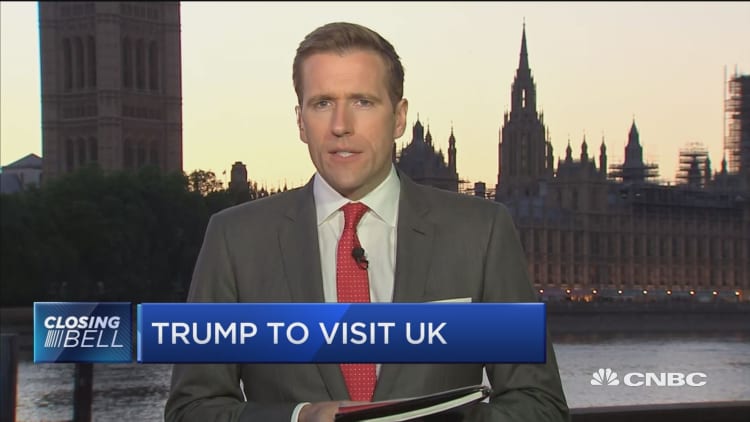
An agreement on the United Kingdom’s exit from the European Union is “slightly less likely” now after the resignations of two key players, said Lord William Hague, former U.K. foreign secretary.
Late Sunday night, the U.K.’s main Brexit negotiator, David Davis, quit. Less than 24 hours later, Boris Johnson resigned as the U.K.’s foreign secretary.
Those who have resigned or have threatened to resign, as well as those who are calling for a leadership election for the Conservative Party, are “making Brexit a little less likely or increasing the chances of some crisis around the end of the year ahead of Brexit,” Hague said in an interview with CNBC’s Wilfred Frost on Wednesday.
“Really, they’re making it easier for the European Union not to make concessions if they think the U.K. doesn’t have a united stance,” he said on “Closing Bell.” “They are in danger of starting to defeat their own cause.”
Ultimately, though, he thinks the deal is still very likely.
In his resignation letter, Johnson was particularly scathing toward Prime Minister Theresa May’s Brexit plan, suggesting that “the Brexit dream is dying.”
A three-page deal on the proposed future relationship with the EU was drafted last weekend.
May told the U.K. Parliament after those resignations that preparations for a “no deal” scenario would be stepped up and that lawmakers should prepare for several outcomes.
The U.K. voted in June 2016 to leave the EU, with the departure date scheduled for March 29, 2019. That means negotiators have about six months to conclude negotiations.
Meanwhile, May’s lack of support from within her own political party could spark a leadership challenge or even lead to another general election.
Hague said he believes May still deserves her job.
“As British prime minister, she faces the most complex situation that we’ve had since the Second World War in negotiating Brexit. And she is making necessary choices and guiding her party and country to those choices,” he said.
“It would be a great mistake to contemplate changing the occupant of Downing Street at this point.”
As for the future of the European Union, Hague thinks it will stay intact. However, he said he’s always believed the single currency — the euro — will not work in its current form.
“A monetary union without a political and fiscal union does not work,” he said, noting that he believes Italy will ultimately leave the euro.
However, while he doesn’t think the EU will break up, he said it is declining in its effectiveness.
“It won’t collapse, but it will find it harder and harder to muster the unity that it needs,” he said.
— CNBC’s Silvia Amaro contributed to this report.


